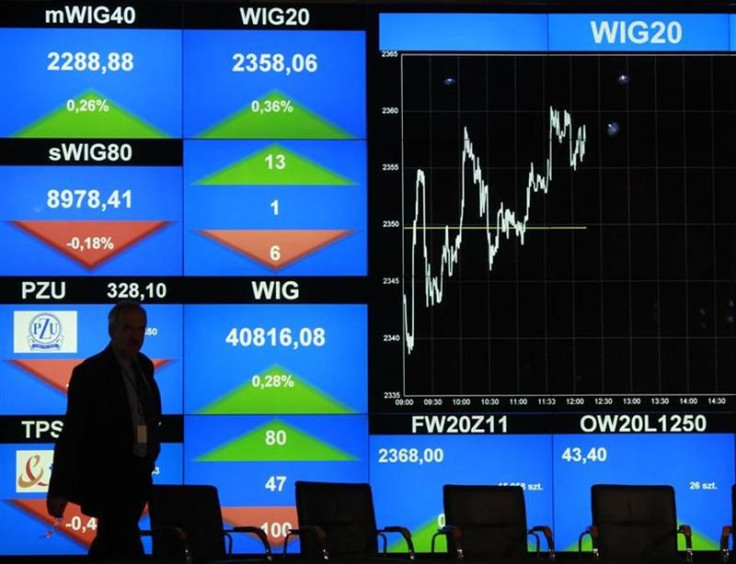World Stocks up as Crucial Week for Euro Kicks off

World stocks and demand for German government bonds rose Monday as confidence grew that European leaders would make big strides in solving the euro zone's debt crisis at a crucial summit this week.
Sentiment was also lifted by Italy's unveiling of austerity steps, and expectations Ireland will do the same in a new budget to be announced later in the day.
European stocks were higher with the FTSEurofirst 300 <.FTEU3> gaining half a percent, building on last week's biggest weekly gain since late 2008.
I'm sure this week will be volatile. There will be moments of disappointment and moments of optimism, said Katsunori Kitakura, chief dealer at Chuo Mitsui Trust Bank.
The week ahead features a series of high profile meeting among European leaders seen as crucial to the future of the 17-nation euro zone.
On Monday, French President Nicolas Sarkozy and German Chancellor Angela Merkel meet to outline joint proposals for more coercive budget discipline in the euro zone, which they want all 27 EU leaders to approve at Friday's summit.
The focus at the summit will be squarely on new rules to tighten fiscal integration.
An agreement could pave the way for an accelerated implementation of the euro zone's rescue scheme to help ensure debt-ridden countries have a vehicle to tap for funds while encouraging bondholders to buy euro zone bonds.
On Tuesday, U.S. Treasury Secretary Timothy Geithner kicks off a visit to the region in Germany, where he will meet European Central Bank President Mario Draghi and government officials.
In a further sign Europe is making progress, four sources have told Reuters Germany is prepared to soften language in the euro zone's permanent bailout mechanism compelling bondholders to accept losses in exchange for much stricter budget rules.
Italy, one of the most severely debt-stricken euro zone countries which has faced soaring borrowing costs, unveiled a 30-billion-euro ($40.3 billion) package of austerity measures on Sunday, raising taxes and increasing the pension age.
VOLATILITY
World stocks as measured by MSCI <.MIWD00000PUS> were up 0.2 percent. Earlier Japan's Nikkei <.N225> closed up 0.6 percent.
The euro, which gained 0.8 percent last week, was flat at around $1.343. The currency stood about 1.4 percent above its seven-week low of $1.3213 hit late last month.
The market wants to see some kind of concrete agreement before investors are prepared to liquidate short positions, said Niels Christensen, currency strategist at Nordea in Copenhagen.
I see the euro trading sideways for now. We may need to see negative news that there won't be any fresh agreement for it to test last week's lows.
On fixed income markets, Italian government bond yields fell across the curve on Monday, and the price of insuring against a default was also lower after the country's austerity measures.
Short-dated Italian bond yields were down as much as 40 basis points and 10-year yields were 26 basis points lower at 6.49 percent, well below the 7 percent level that many consider unsustainable.
(Additional reporting by Jessica Mortimer)
© Copyright Thomson Reuters {{Year}}. All rights reserved.





















